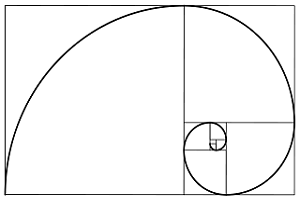Advent Calendar 2023
| Day 24 | Day 25 |
The gift is presented by Cheok-Yin Fung. Today he is talking about his solution to The Weekly Challenge - 246. This is re-produced for Advent Calendar 2023 from the original post.
CY’s Take on The Weekly Challenge #246 ‐ Uniqueness
Task 1: 6 out of 49
Instead of picking out the balls from a box, we can imagine we line up a set of balls labelled 1, 2, 3 ..., 49, and pick out a ball one by one via randomly selecting the k-th ball on the line to be removed.
use v5.30.0;
use warnings;
my @ans;
my @arr = (1..49);
for my $i (0..5) {
my $k = int(rand(49-$i));
push @ans, splice(@arr, $k, 1);
}
say join "\n", sort {$a<=>$b} @ans;
Task 2: Linear Recurrence of Second Order
Let’s have a brief analysis for the task first. It is given 5 integers, and they form some linear recurrence; we have three linear (Diophantine) equations to play with.

Because of the requirement of integral parameter solution(s), I started with extended Euclidean algorithm and Bézout coefficients. Some theory can be found on Wikipedia or here (Linear Diophantine Equations).
The pros of the approach are (1) it identifies non-integral linear equations early on; (2) instead of two degeneracies which may be found in solving the two coefficients through the first two linear equations, it reduces to one degeneracy (a[2]*a[0]-a[1]*a[1] may be zero). And by number theoretic arguments, we know a[2] = k a[1] = k^2 a[0] in case of the degeneracy occurs, then we have p + qk = k^2. a[3] = p a[1] + q a[2] = p k a[0] + q k^2 a[0] = k^3 a[0]. Similarly we can deduce a[4] = k^4 a[0].
The code is full of printing of equations which may not be so relevant to the "solution" but for verifying number theoretic algorithms.
# The Weekly Challenge 246
# Task 2 Linear Recurrence of Second Order
# a[n] = p * a[n-2] + q * a[n-1] with n > 1
# where p and q must be integers.
use v5.30.0;
use warnings;
sub ex_euc_alg {
my @r = ($_[0], $_[1]);
my @s = (1, 0);
my @t = (0, 1);
my $i = 0;
while ($r[-1] != 0) {
my $q = int($r[$i-1]/$r[$i]);
$r[$i+1] = $r[$i-1] - $q * $r[$i];
while ($r[$i+1] > abs($r[$i])) {
$r[$i+1] = $r[$i+1] - abs($r[$i]);
$q = $q + abs($r[$i])/$r[$i]
}
while ($r[$i+1] < 0) {
$r[$i+1] = $r[$i+1] + abs($r[$i]);
$q = $q - abs($r[$i])/$r[$i]
}
$s[$i+1] = $s[$i-1] - $q*$s[$i];
$t[$i+1] = $t[$i-1] - $q*$t[$i];
$i++;
}
my $a0 = $_[0];
my $b0 = $_[1];
say "$r[$i-1] = $a0*$s[$i-1]+$b0*$t[$i-1]";
my ($d,$x,$y) = ($r[$i-1], $s[$i-1], $t[$i-1]);
# for my $k (-10..10) {
# my $x1 = $x - $k*$b0/$d;
# my $y1 = $y + $k*$a0/$d;
# say "$d = $a0*$x1+$b0*$y1";
# }
return [$r[$i-1], $s[$i-1], $t[$i-1]];
}
sub check {
my @a = @_;
# consective zeros check
if ($a[0] == 0 && $a[1] == 0) {
return ($a[2] == 0 && $a[3] == 0 && $a[4] == 0) ? 1 : 0;
}
if ($a[2] == 0) {
if ($a[1] == 0) {
return ($a[3] == 0 && $a[4] == 0) ? 1 : 0;
}
if ($a[3] == 0) {
return ($a[4] == 0) ? 1 : 0;
}
}
my ($d0, $d1, $x0, $y0, $u0, $v0);
my ($a0, $b0);
my ($a1, $b1);
($d0, $x0, $y0) = ex_euc_alg($a[0], $a[1])->@*;
($a0, $b0) = ($a[0], $a[1]);
return 0 if $a[2] % $d0 != 0;
$x0 = $x0 *($a[2]/$d0);
$y0 = $y0 *($a[2]/$d0);
say "$a[2] = $a0*$x0+$b0*$y0";
# for my $k (-10..10) {
# my $x1 = $x0 + $b0/$d0*$k ;
# my $y1 = $y0 - $a0/$d0*$k;
# say "$a[2] = $a0*$x1+$b0*$y1";
# }
($d1, $u0, $v0) = ex_euc_alg($a[1], $a[2])->@*;
($a1, $b1) = ($a[1], $a[2]);
return 0 if $a[3] % $d1 != 0;
$u0 = $u0 *($a[3]/$d1);
$v0 = $v0 *($a[3]/$d1);
say "$a[3] = $a1*$u0+$b1*$v0";
# for my $j (-10..10) {
# my $x1 = $u0 + $b1/$d1*$j ;
# my $y1 = $v0 - $a1/$d1*$j;
# say "$a[3] = $a1*$x1+$b1*$y1";
# }
# $x0 + $b0/$d0*$k == $u0 + $b1/$d1*$j
# $y0 - $a0/$d0*$k == $v0 - $a1/$d1*$j
# $a0$x0 + $a0$b0/$d0*$k == $a0$u0 + $a0$b1/$d1*$j
# $b0$y0 - $b0$a0/$d0*$k == $b0$v0 - $b0$a1/$d1*$j
if ($a[2]*$a[0] != $a[1]*$a[1]) {
my $j = ($a0*$x0 + $b0*$y0 - $a0*$u0 - $b0*$v0)*$d1/($a0*$b1 - $b0*$a1);
my $x1 = $u0 + $b1/$d1*$j;
my $y1 = $v0 - $a1/$d1*$j;
say "($x1, $y1)";
return 0 if int($x1) != $x1 || int($y1) != $y1;
return ($a[4] == $a[2]*$x1+$a[3]*$y1) ? 1 : 0;
}
else {
return ( $a[1]*$a[2] == $a[3]*$a[0]
&&
$a[1]*$a[3] == $a[4]*$a[0]) ? 1 : 0;
# Explanation:
# if a[2] = a[1]*a[1]/$a[0],
# z d0 = x^2/y d0
# since d0 = gcd(x d0, y d0), x, y coprime
# then y must be 1, i.e. x a[0] = a[1]
# and a[2] = x^2 d0 = x a[1]
# i.e. x a[1] = a[2]
}
}
Test Cases
use Test::More tests=>11;
ok check(1, 1, 2, 3, 5);
ok !check(4, 2, 4, 5, 7);
ok check(4, 1, 2, -3, 8);
ok check(3, 9, 27, 81, 243);
ok check(3, 5, 27, 45, 243);
ok check(1, 1, 0, 0, 0);
ok check(0, 0, 0, 0, 0);
ok check(1, 0, 0, 0, 0);
ok check(0, 3, 0, 0, 0);
ok !check(0, 0, 3, 0, 0);
ok check(2, 4, 8, 16, 32);
Hope for Peace!
The image of Fibonacci spiral is taken from Wikimedia Commons, released in public domin.
Acknowledgement: Thanks to discussion of the PA&A Discord Channel (maintained by Adam Crussell).
If you have any suggestion then please do share with us perlweeklychallenge@yahoo.com.
